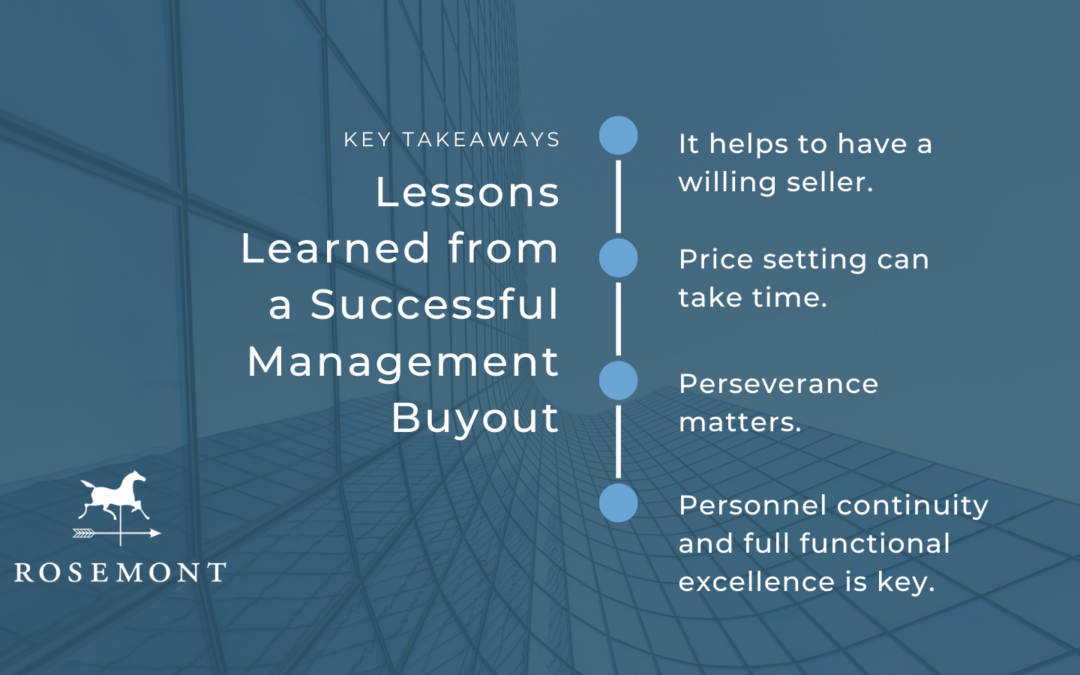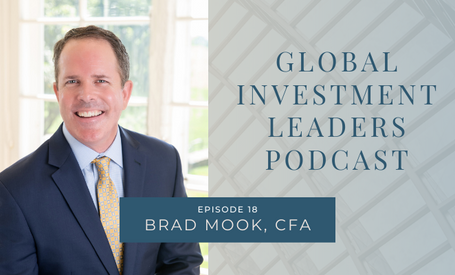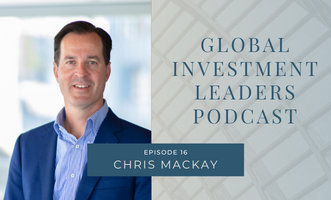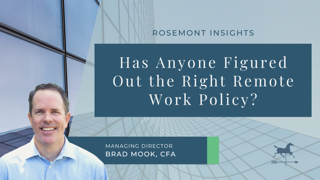
February 2, 2023
Last month’s inaugural How They Did It podcast featured our interview with Leeward Investments CEO Todd Vingers on his firm’s successful management buyout from its parent company, LMCG. Leeward—a Boston-based US value equity manager with roughly $2.7 billion under management—was the value franchise within LMCG, a subsidiary of City National/RBC before Todd and his partners completed an MBO early last year.
Leeward’s successful MBO is one of a small number in recent years, and a potentially helpful example for others contemplating a similar move. Most would-be MBOs stall out, snagging on one gating issue or another. Often the management leaders don’t have the determination or capability to make it happen, or there isn’t a sufficiently cohesive group to establish a standalone business. Perhaps a price can’t be reached, or the parent is obstinate, or the clients’ business can’t be neatly carved out. There are myriad execution challenges and risks that might be too daunting for either side to accept. A lot has to go right.
So what did we learn from Leeward’s experience? There are a few takeaways worth keeping in mind.
1. It helps to have a willing seller. Threatening to walk out might bring a parent to the negotiating table, but it likely means high risk and scorched earth. The odds of a minimally disruptive negotiation are much higher if both parties see potential merit in a separation. In Leeward’s case, City National/RBC was looking to divest non-strategic assets. In others, there may be room for an ongoing relationship, perhaps managing parent assets or contracting parent resources. Thinking about benefits to the seller can be a good way to grease the wheels.
2. Price setting can take time. Often parties come to the negotiating table with unproductive expectations, and all kinds of biases are at play (self-serving, confirmation, anchoring, recency, etc.). Narrowing the bid/ask spread likely requires a cocktail of negotiation, education and patience (and perhaps, at times, an actual cocktail). We all want to make things happen and move forward, but in this context patience is an advantage. For Leeward, the steady drumbeat of interest combined with its solid investment and business performance allowed it to hang around the hoop until the conditions were right.
3. Perseverance matters. Not only can price setting take time, but there are likely to be myriad obstacles that get in the way. Perhaps a business setback, an uncooperative colleague, or a difficult negotiation. Todd didn’t share any major obstacles beyond price setting, but we’ve seen others run into roadblocks and quit trying and we’ve seen some with the fortitude to push through. Bottom line is if you don’t want it badly enough, you likely won’t get it.
4. Personnel continuity and full functional excellence is key. Whether it’s an MBO, a lift-out or a walk-out, odds of success highly correlate to keeping most or all of the key people and to having highly capable people in key roles. Too often we see investment teams or financial advisors attempt to peel off, with little regard for the other legs of the stool and proper infrastructure. Leeward was smart/lucky/both to have all the right people at their prior firm come along. No doubt this enhanced client confidence in the company’s ability to execute on its own, and getting out of the gate with the client base largely intact undoubtedly keeps them out of the penalty box and bolsters viability.
Every MBO is going to look different, but these are some of the basic principles underneath the successful ones. We’ll have another MBO example to share in the next How They Did It episode in March. In the meantime, let us know what you learned from the Leeward episode, or from your own experiences and observations. If you haven’t yet listened to our conversation with Todd Vingers, you can find it here.

December 20, 2022
In this special year-end episode of the Global Investment Leaders podcast, Rosemont CEO Chas Burkhart is joined by Rosemont Managing Director Brad Mook for a conversation about the challenges and opportunities investment management firms are facing in today’s environment. From their unique vantage point of partnering with many firms over multiple market cycles, Burkhart and Mook discuss:
- Deal activity in the industry and how the market dynamics have changed for both wealth management and asset management deal-making
- Challenges management teams of investment businesses face in today’s uncertain, rising-rate environment, including managing expenses, acquiring and retaining talent, and ensuring alignment among team members
- Their advice for those considering starting their own firms from scratch or going independent, and alternate options such as merging with a well-established firm
- How demand for ESG investments is shifting amid political and regulatory headwinds and the importance of authenticity for mission-driven investors
- A lightning round on the important issues in the industry today, including strategies for uncertain markets, the future of crypto, cybersecurity, and diversity and inclusion in the investment managee industry
In addition to the year-end discussion, Burkhart and Mook also shared an exciting update for the Global Investment Leaders podcast in the year ahead: In 2023, Mook will be joining Burkhart as a podcast host, featuring a bi-monthly interview with industry leaders about how they solved common challenges faced by many of their peers. Mook’s How They Did It sub-series of the Global Investment Leaders podcast will feature industry insiders’ perspectives and is set to premiere in January.
All episodes of the Global Investment Leaders podcast are available on Apple Podcasts, Spotify, Google Podcasts and more. Receive the episodes as soon as they premiere by subscribing today.

October 13, 2022
On this episode of the Global Investment Leaders podcast, Rosemont CEO Chas Burkhart was joined by Chris Mackay, Director of Client Service & Marketing at 1607 Capital Partners, a $4 billion* Richmond-based boutique asset management firm offering equity and fixed income closed-end fund portfolios. With a bottom-up, value-oriented approach, 1607 Capital Partners trades closed-end funds and other discounted assets based on a proprietary system developed and refined over 25+ years.
Throughout their conversation, Burkhart and Mackay discuss:
- The definition of closed-end funds and how they have been a reliable source of excess returns in portfolios over time
- The genesis of the firm’s investment strategy and the compelling opportunity the firm’s founding partners saw in the closed-end fund niche
- The evolution of 1607’s investment process, which Mackay notes has benefited from meaningful advances while still focusing on the same core strategy
- The client base at 1607—which primarily includes institutional clients such as endowments, foundations and pensions—and the long-term relationships the firm maintains
- The company’s approach to attracting and retaining talent, including the purpose behind the firm’s employee ownership and why it intends to retain its independence to ensure long-term success
When it comes to the firm’s growth strategy, Mackay emphasizes the importance of growing thoughtfully, systematically and slowly to maintain the level of returns and client service for which the firm is known. Mackay explains that while the firm‘s technology has become increasingly sophisticated, the subject matter expertise of its investors is a differentiating factor that helps it take advantage of volatility to build portfolios of closed-end funds trading at discounts to their long-term averages.
All episodes of the Global Investment Leaders podcast are available on Apple Podcasts, Spotify, Google Podcasts and more. Receive the episodes as soon as they premiere by subscribing today.
*Approximate AUM of 1607 Capital Partners at time of recording

September 15, 2022
In this episode of the Global Investment Leaders podcast, Rosemont CEO Chas Burkhart is joined by Rick Hough, CEO of Silvercrest Asset Management Group, a leading US wealth management firm with approximately $29 billion in assets under management.* Founded in 2002, Silvercrest provides traditional and alternative investment advisory and family office services to wealthy families, institutional investors and endowments.
Prior to becoming CEO, Hough worked closely with Silvercrest Founder Moffett Cochran to build the business and execute the firm’s strategy, with roles as president and chief operating officer. Cochran’s goal from the beginning was to create a publicly traded company, and Hough has executed that vision capably throughout his tenure. During their conversation, Hough and Burkhart discuss Silvercrest’s evolution and defining characteristics, the benefits and challenges publicly traded wealth management firms face, and Hough’s thoughts on Silvercrest’s future.
Listen to learn more about:
- Hough’s unique background in the nonprofit world and what led him to Silvercrest
- Silvercrest’s hybrid architecture and the investment engine driving returns for clients
- How Silvercrest delivers institutional quality investment skills, a conflict-free model and exemplary client service in an increasingly crowded and competitive landscape
- Why Silvercrest became – and remains – one of the few publicly traded wealth management firms
- Hough’s leadership orientation and how he spends his day as CEO at Silvercrest
When it comes to Silvercrest’s near- and long-term aspirations, Hough balances innovation with remaining focused on protecting the generations of capital with which the firm is entrusted. “Being conservative with capital does not mean you’re unable to innovate…and there are a number of ways you can innovate on behalf of clients.” Hough cites technology as an important focus that is improving and deepening client relationships.
All episodes of the Global Investment Leaders podcast are available on Apple Podcasts, Spotify, Google Podcasts and more. Receive the episodes as soon as they premiere by subscribing today.
*Silvercrest Asset Management Group’s AUM at time of recording

August 11, 2022
In this episode of the Global Investment Leaders podcast, Rosemont CEO Chas Burkhart is joined by Kristen Bauer, CEO of Laird Norton Wealth Management, an independent Seattle-based wealth management firm. Founded in 1967 as a single-family office, Laird Norton now manages approximately $15 billion in assets* for nearly 1,500 prominent families, individuals, foundations and endowments.
A CPA with more than 20 years of experience in holistic wealth management, Kristen originally started her career as a trusted advisor and CFO for George Russell and his family. Prior to joining Laird Norton, she went on to become president at Threshold Group, helping transition that single-family office into a multi-client office, developing and leading the national family office practice and ultimately merging the company into Tiedemann Advisors.
During their conversation, Bauer and Burkhart discuss:
- Bauer’s tenure as CEO of Laird Norton, which started just weeks before the Covid-19 pandemic began making headlines, and the workplace changes she has navigated in the years since
- Laird Norton’s unique position as a registered investment advisor and a trust company and how that structure better enables the firm to partner with clients for multiple generations
- How the client experience is the first consideration when it comes to inorganic growth, with employees, clients and the community as key stakeholders in M&A decision making
- Laird Norton’s approach to ESG and impact – both on behalf of the clients they serve and within the four walls of their company
- The ownership of Laird Norton and the recent introduction of employee equity to ensure the sustainability of the firm for years to come
Regarding the future of Laird Norton, Bauer tells Burkhart that she is focused on the long-term. “We’re feeling like we are in the J-curve of an investment and we are really thinking about what the next 10 years look like – not what the next year looks like,” Bauer says “When you look at it from that approach, decisions become a little bit easier in the organization.”
All episodes of the Global Investment Leaders podcast are available on Apple Podcasts, Spotify, Google Podcasts and more. Receive the episodes as soon as they premiere by subscribing today.
* Approximate AUM for Laird Norton Wealth Management at time of recording

August 10, 2022
That’s the question we get in almost every single meeting. Investment firms are struggling to find the right policy, and they want to know if their peers have found the answer. The answer is simple… no, they haven’t.
Nearly everyone agrees the “old days” of five mandatory days in the office are unlikely to return. No doubt some will try—even acknowledging there may be fallout from such an approach—but they will be a small minority and may find the fallout greater than anticipated. An illustrative comment we heard recently: “If he drags us back five days a week, I’ll leave.”
On the other hand, nearly everyone also agrees some element of in-person is necessary— for so many reasons— and most firms are thus experimenting with all types of hybrid environments. “And it’s working!” they say, optimistically, before explaining why it’s not. Usually, the regrets are related to not knowing who’s in and when, or people missing important information because they weren’t in the office and the conversation happened after the team’s Zoom call ended.
We’ve learned a few important lessons through these conversations, and can share a few key takeaways:
Listen to your people. Whether through conversations, surveys or other means, find out what is important to the individuals on your team. People may value the ability to work from home because they avoid a long commute, or because they actually get more done without interruptions all day. Or they have childcare issues, or perhaps hate their coworker. Alternatively, maybe they like coming in but see no point if others aren’t there. And if they are to come in, they might have some suggestions on office space given new working norms.
The emotions and reasons may or may not be valid. But asking the questions and getting the information can allow you to make informed policy decisions. And listening to their concerns will win loyalty and effort.
Set a policy and communicate expectations. It doesn’t have to be perfect right away; it’s okay to try a policy for a while and then adjust as you try to find the right balance. Not everyone will be happy—you’ll never be able to please everyone—but it can be created collaboratively and should be communicated clearly so everyone knows what’s expected of them. Everyone’s got to row in the same direction to get anywhere.
Be flexible. Whatever policy you’re leaning toward, make sure it offers flexibility. The most valuable real estate for employees is the space between their work life and their personal life. Being flexible here will come back in spades; being rigid will chase people away. That may mean certain fixed days in the office to ensure overlap and/or coverage, with a flex day or two each week. It may mean asking people to be in the office five days if they can but being accommodating of work from home when needed (in their judgment, not yours). Some companies have decided to give each employee a certain number of WFH flex days each quarter to use as they wish.
Remind people that the health of the company is key, and that the people are the company. Teammates should look out for one another, be compassionate and supportive, hold each other accountable, and recognize it’s about the team, not any one person. Young employees need mentoring, socialization and the osmosis effect. More experienced employees should understand they have a role in helping younger folks along and might need to be in the office a bit more to help with development and culture. And everyone needs to do their work, and well. If those second-order needs are met, being prescriptive about policy is less important.
Define success, thoughtfully. What really matters, both now and over time? For some emperor types, simply seeing their people in their chairs all day every day might be “success.” But much of the corporate world has evolved. A reasonable objective for a remote work policy might be one that achieves high retention and productivity… are we keeping our best people and putting them in a position to do their best work? Those are signs of a high-performing culture, not a bad north star for policy decisions.
I expect the pendulum, which has swung heavily toward workers in the last few years, to swing back toward employers. We’ve heard a few anecdotes recently, such as a manager telling his team they’d need to return to the office four days a week and being told they’d be willing to do three. In a tougher market and/or economy, workers may be less emboldened to dictate terms like that. But it is clear from everything we’ve heard, read and observed that the above principles have proven the most effective for most so far and will likely be successful approaches going forward.
Firms are starting to set policies—they have to—but they’ll no doubt evolve over the next few years as managements learn what works or doesn’t and employers and employees find equilibrium. For now, though, you’re not alone if you haven’t found the “right” answer.
Note there are additional resources you can turn to, such as the CFA Institute’s three-part series, “Where, What and How Work Gets Done: The Future of Work in Investment Management”, and PwC’s Hybrid Work Comes to Financial Services.







Recent Comments